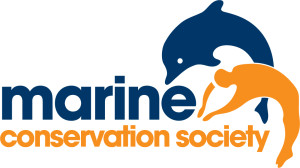News
Acid, alien and hot! Beach visitors to put seaweeds under the spotlight

Beach visitors are being asked to turn scientist this summer to help understand a bit more about the seaside’s unsung hero – seaweed!
The Marine Conservation Society (MCS) has teamed up with the Natural History Museum on a project to get people out on our shores to help study seaweeds. With their 3D structure and multi-coloured forms, seaweeds create shelter and food for an immense diversity of other marine organisms and also support commercial fisheries. But most people don’t give them a second look, and even consider them a slippery nuisance we could do without!
The Big Seaweed Search, a new citizen science project, will help to map out the distribution of seaweeds around Britain. Seaweed distribution and abundance around our coasts is changing. To investigate why this might be and what’s out there, the Big Seaweed Search will try and establish just what is affecting seaweeds on British coasts.
Miranda Krestovnikoff, TV presenter and diver says: “This is a great way to find out more about our beautiful UK seaweeds, and to help researchers track how they are faring in changing environmental conditions. And anyone can join in. At last, seaweeds will get the attention they deserve!”
The seashores and shallow seas around Britain support over 650 species of seaweed, making them globally significant and an important component of British biodiversity. The study will focus on 14 species, to increase our knowledge of how sea temperature increase, sea level rise, impacts of non-native species and increasing acidity are affecting the distribution of different species of seaweed.
“It’s easy to take them for granted, but seaweeds are fascinating, provide shelter and food for an immense variety of marine wildlife, and are of enormous use to humanity”, says Professor Juliet Brodie, of the Natural History Museum. “People are unaware that our daily lives are affected by seaweeds in many ways, from foods and medicines to buffering the effects of rough seas on our vulnerable coastlines”.
In the Big Seaweed Search, eight species of conspicuous wracks (part of the common names of several species of seaweed) have been selected for the public to record. Many of these will probably be familiar, such as bladder wrack, Fucus vesiculosus, with its bladders resembling bubble-wrap that pop underfoot, and knotted wrack, Ascophyllum nodosum, which produces a single egg-like bladder once a year and can live for an estimated 50-60 years.
The study also hopes to unearth more about non-natives and their impact on British coasts. “One of the most well-known ‘aliens’ listed in the study is wireweed, Sargassum muticum, a brown seaweed that was first recorded on the south coast of England in 1973 and has spread very rapidly since then. Another conspicuous non-native seaweed and a favoured food in Japan, Wakame, Undaria pinnatifida, was first recorded in Britain in 1994 on pontoons but is now starting to colonise rocky shores. These ‘aliens’ are here to stay so we need to learn to live with them,” says Juliet.
Justine Millard, MCS Head of Education and Outreach, says the study will establish whether any of these seaweeds are changing in their range, or becoming more or less widespread. “Anyone can be a citizen scientist. We’ll provide simple instructions and an identification guide so that everyone can make a valuable contribution to our knowledge of this important and underappreciated group.”
To take part, register at www.nhm.ac.uk/seaweeds.
Photo: Frogfish Photography
Gear News
Introducing the TR-80, IR-50 and CS-30 Regulators from DYNAMICNORD

Whether you are a beginner or a professional diver – with the three new main regulators from DYNAMICNORD, everyone will find their favourite regulator. They all look super stylish.
Excellent performance with the TR-80
Quality and performance are the be-all and end-all for regulators. It is not for nothing that the TR stands for Tec Reg. The innovative design of the TR-80 guarantees absolute reliability – even in ice-cold waters.

Perfect breathing effort at 0.8 J/l / certified for diving in waters below 10 degrees / structural design made of solid brass for best cold protection / membrane-compensated design with dry seal of the first stage / reduced exhalation effort thanks to optimized exhalation membrane and bubble deflector / adjustable Venturi (dive/predive) and adjustment knob for individual inhalation comfort / innovative design of the front cover prevents free-flow in strong currents or when diving with scooters / design made of sandblasted brass, matt chrome finish / 2 HP and 4 LP outlets / mouthpiece made of high-quality, anti-allergic silicone for maximum comfort.


Amazing underwater adventures with the IR-50
The IR-50 is the top regulator for advanced and experienced divers. Natural breathing is the essence of this regulator.

Ideal breathing effort at 0.8 J/l /certified for diving in waters below 10 degrees / compensated membrane / adjustable venturi (dive/predive) and adjustment knob for individual inhalation comfort/ outlet valve and deflector for minimum exhalation effort and reduction of bubbles on the face / design made of sandblasted brass, matt chrome finish / 2 HP and 4 NP outlets / mouthpiece made of high-quality, anti-allergic silicone for maximum comfort.


The Workhorse – our CS-30
For diving centres and diving beginners – the workhorse stands for strong construction, reliability and robustness. Perfect for your training.

Optimal breathing effort at 0.8 J/l /recommended for diving in waters above 10 degrees / non-compensated piston / adjustable venturi (dive/predive) / outlet valve and deflector for minimum exhalation effort and reduction of bubbles on the face / design made of sandblasted brass, matt chrome finish / 1 HP and 3 NP outlets / mouthpiece made of high-quality, anti-allergic silicone for maximum comfort.


Octopus OP-30
The OP-30 is the ideal addition to all DYNAMICNORD regulators. It is identical in construction to the CS-30.

The TR-80, IR-50, CS-30 (DIN & INT) regulators and the Octopus OP-30 are available from DYNAMICNORD dealers and in the online store.
DYNAMICNORD – Your Outdoor Companion.
Marine Life & Conservation
Paul Watson Released as Denmark Blocks Japan’s Extradition Bid

Renowned anti-whaling activist Paul Watson has been released from custody in Greenland after spending five months in detention. Denmark’s Justice Ministry rejected Japan’s request for his extradition, citing insufficient guarantees that his time already served in custody would be credited against any potential sentence.
The 74-year-old Canadian-American was arrested on July 21 in Nuuk, Greenland’s capital, when his ship docked to refuel. His arrest was based on a 2012 Japanese warrant related to a 2010 encounter in Antarctic waters. Japan alleged Watson obstructed operations and caused damage to a whaling research ship during efforts to disrupt illegal whaling. Watson has consistently denied these claims, maintaining his commitment to marine conservation.
Denmark, which oversees extradition matters for Greenland, concluded that while the legal conditions for extradition were met, the lack of assurances from Japan regarding time-served credit made extradition untenable.
In a video shared by his foundation, Watson expressed gratitude and relief, saying, “After five months, it’s good to be out… and good to know they’re not sending me to Japan.” He added that the most difficult part of his time in custody was being separated from his two young sons.
Watson is a pioneering figure in marine conservation, known for founding the Captain Paul Watson Foundation in 2022 after decades of activism with the Sea Shepherd Conservation Society. His bold efforts to defend marine life have earned him widespread support, including from celebrities and conservationists. His work has also been featured in the acclaimed reality TV series Whale Wars.
Watson’s lawyer, Jonas Christoffersen, praised the decision, stating, “We are happy and relieved that Paul Watson is now free.” He added that Watson is eager to reunite with his family and continue his vital work.
The arrest occurred while Watson’s vessel, the M/Y John Paul DeJoria, was en route to the North Pacific with a team of 26 volunteers to intercept a Japanese whaling ship. His foundation described the arrest as politically motivated and emphasized that Watson’s actions were focused on ending illegal whaling practices.
Japan resumed commercial whaling in 2019 after leaving the International Whaling Commission, asserting that whale meat is a cultural tradition. Conservationists, however, continue to challenge these practices, highlighting their impact on marine ecosystems.
Despite the challenges, Watson remains steadfast in his mission to protect marine life and bring attention to whaling practices. His dedication to ocean conservation has made him a globally respected advocate for the environment.
-

 News2 months ago
News2 months agoIconic SS United States to become the World’s Largest Artificial Reef
-

 News3 months ago
News3 months agoBook Review – 52 Assignments: Underwater Photography
-

 Gear News3 months ago
Gear News3 months agoDYNAMICNORD – New German diving brand enters the British market
-

 News3 months ago
News3 months agoExploring Cenote El Pit: A Diver’s Dream
-

 Gear News3 months ago
Gear News3 months agoTry BARE drysuits (and maybe even win one!) this Friday with Sea & Sea at North West Dive Fest
-

 Marine Life & Conservation3 months ago
Marine Life & Conservation3 months agoBook Review: Coral Triangle Cameos
-

 Blogs2 months ago
Blogs2 months agoDive the Egyptian Red Sea this Autumn with Regaldive
-

 News3 months ago
News3 months ago2024 Ocean Art Underwater Photo Competition Announced

















